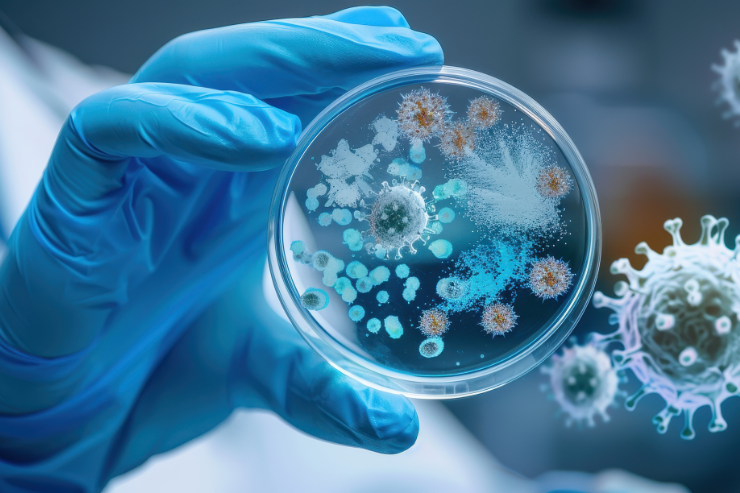- Phone : +91-9248437119
- Email : vsnmanne1970@gmail.com
- Opening Hours : 08:00AM to 09:00PM
Home > Microbiology

Understanding Microbiology:
Microbiology is the study of microorganisms, including bacteria, viruses, fungi, and protozoa, and their effects on humans, animals, plants, and the environment. This field of science investigates the structure, function, and behavior of these tiny organisms, which can be both beneficial and harmful. Microbiologists explore how microorganisms contribute to processes like fermentation and nutrient cycling, as well as how they cause infections and diseases. Understanding these microorganisms at a molecular and cellular level is crucial for developing new treatments and preventive measures against infectious diseases and for harnessing their potential in biotechnology and environmental applications.
The Role of Microbiology in Health and Disease:
Microbiology plays a vital role in healthcare by identifying and diagnosing infectious diseases. Clinical microbiologists use various techniques to detect and analyze pathogens in samples from patients, such as blood, urine, or swabs. This helps in diagnosing infections and determining the most effective treatments, including antibiotics or antivirals. Microbiologists also contribute to public health by monitoring and controlling the spread of infectious diseases, studying outbreaks, and ensuring the safety of food and water supplies. Additionally, advancements in microbiology support vaccine development and the creation of new antimicrobial agents, which are essential for combating emerging and resistant pathogens, ultimately improving health outcomes and enhancing disease prevention.